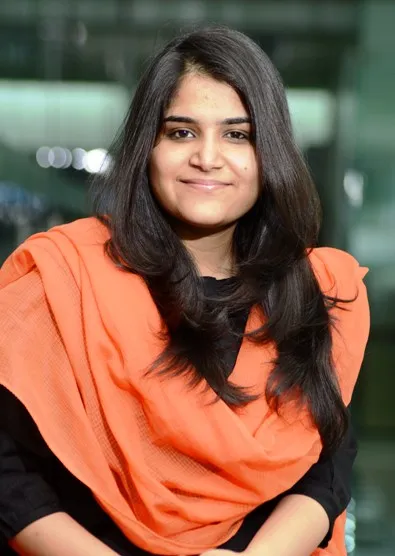Sheer ambition drives 24-year-old to start Core Diagnostics
When we say India is a land of opportunity, there are a few sectors where this opportunity is more visible than others. Healthcare is a sector that holds promise. While healthcare is a broad area of opportunity, different verticals within the space have more potential. KPMG has pegged the healthcare diagnostics market to be worth $2.5 billion in 2012 and to grow in the region of 18-20% in the coming few years. And while there are well-known names in the usual diagnostics space, esoteric or specialised diagnostics is still an open field. It is in this green field that young Zoya Brar has set out to seek her fortune.

The 24-year-old Zoya got hired by Google fresh out of college. She, however, quit in two years in March 2013 to found Core Diagnostics – a clinical laboratory focused on next generation diagnostics for disease stratification and therapy selection. If you thought starting up in clinical diagnostics was a tough task, try telling this young girl that. Zoya, who is the youngest member in the team, says the way Core Diagnostics is different from the other diagnostic chains is because of its emphasis on being innovative.
So within a few months of launching, the first thing Core Diagnostics has done is merge with Palo Alto, US-based diagnostics chain OncoMDx. This move was important to get access to the expertise of histo pathologists and super specialists who work in the US, says Zoya. “We could have always sent the patient report to the US for testing but that would have resulted in high costs for the customer. Instead, through this merger they now have access to experts sitting in the US, who can offer their services to Indian patients are a little incremental cost,[V1] ” she says. Core Diagnostics will leverage its partnership with OncoMDx to help patients who use Core Diagnostics services in India.
Zoya says their focus is esoteric diagnostic because there exists a big gap in supply and demand in that space. She narrates an example of a woman who had a benign tumour in her breast, but was treated for breast cancer and also had to undergo mastectomy due to wrong diagnosis. “That lady didn’t even need any treatment, but had to undergo so much mental and physical trauma because of wrong diagnosis,” explains Zoya.
Another reference she cites is the emergence of branded hospital chains in India over the last few years. “If you go back 10 years and see how healthcare delivery has evolved in India all the hospitals that are well-known today, didn’t exist back then. We were living with what was available. Then hospitals like Fortis came to India resulting in a change in customer demand. If you had asked people 15 years ago whether this will work, they would have said it is too high end and we don’t need it. But today the scenario has changed. This is how esoteric diagnostics will also evolve,” she reasons. India will be the main market for Core Diagnostics, but going forward they will offer services in the US as well.

Besides their panel of specialists in the US, Core Diagnostic has a team of 30 in India who handle affairs of the startup here. The team is a mix of people from various backgrounds, including pharma, medical devices, IT and healthcare delivery among others. “If you go to other pathologies, there is a certain way they hire. But clearly those labs are not doing all the things right. So we wanted a team from different backgrounds so as to allow lot of innovation to happen on a daily basis,” reasons Zoya.The startup has taken the below-the-line approach to publicise itself and Zoya says they will continue with this strategy for some time. One-to-one meetings with doctors to inform them about Core Diagnostic are also being adopted.
Zoya says expanding to all major metros within India is on the cards in the near future. However, as they grow their expansion strategy will be three-pronged – on geography, technology and clinical options. Geographic expansion will mostly be through company-owned outlets so that the quality of service delivery can be well-managed.
Core Diagnostics received a funding of $5 million from Artiman Ventures in the beginning and is on the lookout for fresh funding. While the journey has had its share of challenges, Zoya admits that hiring was the biggest of them all. It did not help that people in the diagnostics industry are mostly senior professionals and a 20-year-old taking their job interview was not something they had expected. Zoya found a way to work around this problem by getting her VCs and advisory board members to conduct the interviews. “Talking to VCs is the easy part because they like to invest in people, not the idea or the company. But yes, hiring team members was a challenge. We used some tricks in the book, but managed to do a good job,” she says.







